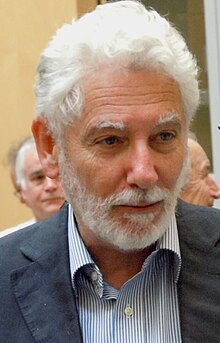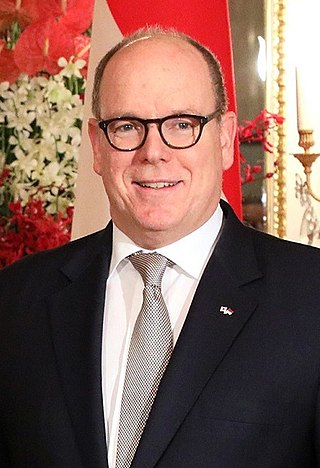
Albert II is Prince of Monaco, reigning since 2005.
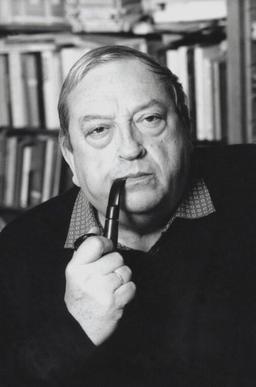
Jacques Le Goff was a French historian and prolific author specializing in the Middle Ages, particularly the 12th and 13th centuries.
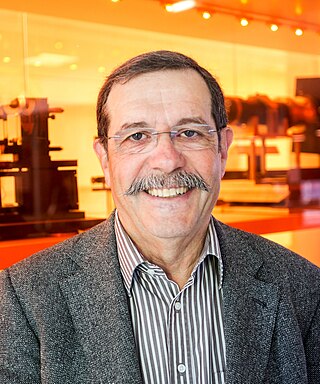
Alain Aspect is a French physicist noted for his experimental work on quantum entanglement.

Alain Touraine was a French sociologist. He was research director at the École des Hautes Études en Sciences Sociales, where he founded the Centre d'étude des mouvements sociaux. Touraine was an important figure in the founding of French sociology of work after World War II and later became an internationally-renowned sociologist of social movements, particularly the May 68 student movement in France and the Solidarity trade-union movement in communist Poland.

The Achuar are an Indigenous people of the Americas belonging to the Jivaroan family, alongside the Shuar, Shiwiar, Awajun, and Wampis (Perú). They are settled along the banks of the Pastaza River, Huasaga River, and on the borders between Ecuador and Perú. The word "Achuar" originates from the name of the large palm trees called "Achu" that are abundant in the swamps within their territory.

Yves Coppens was a French anthropologist and co-discoverer of "Lucy". A graduate from the University of Rennes and the Sorbonne, he studied ancient hominids and had multiple published works on this topic, and also produced a film. In October 2014, Coppens was named an Ordinary Member of the Pontifical Academy of Sciences by Pope Francis.

Jean Tirole is a French economist who is currently a professor of economics at Toulouse 1 Capitole University. He focuses on industrial organization, game theory, banking and finance, and psychology. In particular, he focuses on the regulation of economic activity in a way that does not hinder innovation while maintaining fair rules.

Françoise Héritier was a French anthropologist, ethnologist, and feminist. She was the successor of Claude Lévi-Strauss at the Collège de France. Her work dealt mainly with the theory of alliances and on the prohibition of incest. In addition to Lévi-Strauss, she was also influenced by Alfred Radcliffe-Brown. She was replaced by Philippe Descola, who is the current holder of the chair of anthropology at the Collège.
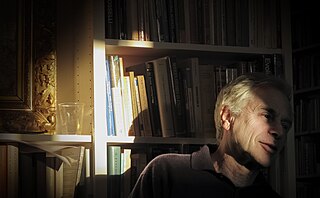
Dan Sperber is a French social and cognitive scientist and philosopher. His most influential work has been in the fields of cognitive anthropology, linguistic pragmatics, psychology of reasoning, and philosophy of the social sciences. He has developed: an approach to cultural evolution known as the epidemiology of representations or cultural attraction theory as part of a naturalistic reconceptualization of the social; relevance theory; the argumentative theory of reasoning. Sperber formerly Directeur de Recherche at the Centre National de la Recherche Scientifique is Professor in the Departments of Cognitive Science and of Philosophy at the Central European University in Budapest.
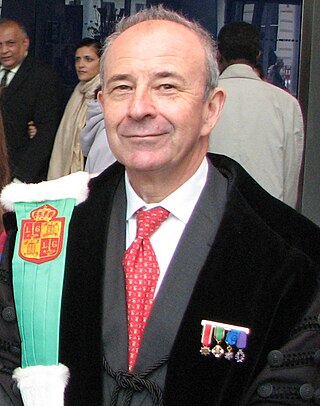
Sami Erol Gelenbe, a Turkish and French computer scientist, electronic engineer and applied mathematician, pioneered the field of Computer System and Network Performance. Currently Professor in the Institute of Theoretical and Applied Informatics of the Polish Academy of Sciences, he is also a Visiting Professor at King's College London, Associate Researcher in the I3S Laboratory, and the Abraham de Moivre Laboratory. Fellow of several National Academies, he Chairs the Informatics Section of Academia Europaea since 2023. His previous Professorial Chairs include the University of Liège (1974-1979), University Paris-Saclay (1979-1986), University Paris Descartes (1986-2005), NJIT (1991–93), ECE Chair at Duke University (1993-1998), University Chair Professor and Director of EECS, University of Central Florida (1998-2003), and Dennis Gabor Professor and Head of Intelligent Systems and Networks, Imperial College (2003-2019).
The CNRS Gold Medal is the highest scientific research award in France. It is presented annually by the French National Centre for Scientific Research (CNRS) and was first awarded in 1954. Moreover, the CNRS Silver Medal is given to researchers for originality, quality, and importance, while the CNRS Bronze Medal recognizes initial fruitful results.

Thomas Ebbesen is a Franco-Norwegian physical chemist and professor at the University of Strasbourg in France, known for his pioneering work in nanoscience. He received the Kavli Prize in Nanoscience “for transformative contributions to the field of nano-optics that have broken long-held beliefs about the limitations of the resolution limits of optical microscopy and imaging”, together with Stefan Hell, and Sir John Pendry in 2014.

Antônio Augusto Cançado Trindade was a Brazilian jurist and international judge. He was appointed as judge of the International Court of Justice (ICJ) from 6 February 2009. He was reelected to the Court in December 2017, and took office for his second term on 6 February 2018, serving until his death in 2022.

Jean-Jacques Hublin is a French paleoanthropologist. He is a professor at the Max Planck Society, Leiden University and the University of Leipzig and the founder and director of the Department of Human Evolution at the Max Planck Institute for Evolutionary Anthropology in Leipzig, Germany. He is best known for his work on the Pleistocene hominins, and on the Neandertals and early Homo sapiens, in particular.
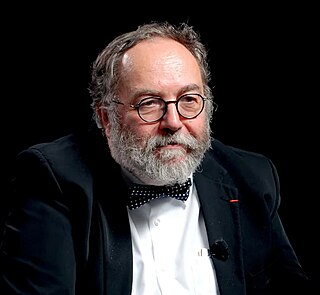
Yves Bréchet is a physicist, specialist of materials science, former High Commissioner for Atomic Energy of France, current Scientific Director of Saint Gobain, professor (part-time) at Monash University, and a member of the French Academy of Sciences.
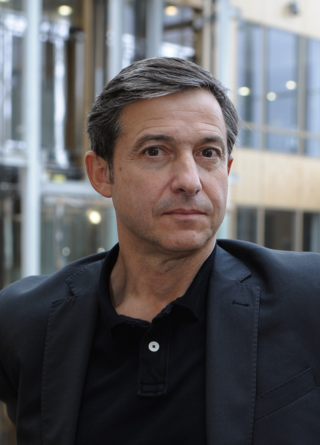
Didier Fassin, born in 1955, is a French anthropologist and sociologist. He is a Professor at the Collège de France on the chair “Moral Questions and Social Issues in Contemporary Societies” and the James D. Wolfensohn Professor of Social Science at the Institute for Advanced Study in Princeton and holds a Direction of Studies in Political and Moral Anthropology at the École des Hautes Études en Sciences Sociales in Paris. He was elected to the Academy of Europe in 2021 was elected to the American Philosophical Society in 2022.
The ontological turn is an increased interest in ontology within a number of philosophical and academic disciplines during the early 2000s. The ontological turn in anthropology is not concerned with anthropological notions of culture, epistemology, nor world views. Instead, the ontological turn generates interest in being in the world and accepts that different world views are not simply different representations of the same world. More specifically, the ontological turn refers to a change in theoretical orientation according to which differences are understood not in terms of a difference in world views, but a differences in worlds and all of these worlds are of equal validity.

Joël Bockaert is a French biologist.
Nicole-Claude Mathieu (1937–2014) was a French anthropologist, feminist, academic and writer, who is remembered for her contributions to gender studies, including women's rights, the institution of marriage, materialist feminism and women's oppression. An active contributor to feminist journals, from 1971 she served as Chef de travaux at the Laboratoire d'anthropologie sociale where she edited the journal L'Homme while contributing many articles of her own. From 1990, she was maîtresse de conférences at the School for Advanced Studies in the Social Sciences. In June 1996, she received a doctorate honoris causa from the Université Laval.
